The document provides an overview of international business, including definitions, objectives, importance, modes, and terms. It discusses how international business allows for the optimization of resources and diversification of risk. Key terms are defined, such as multinational companies, global companies, and transnational companies. International business is described as important for earning foreign exchange, utilizing resources efficiently, achieving corporate objectives, spreading risk, improving efficiency, and gaining government benefits. Common modes of international business include imports/exports, tourism/transportation, licensing/franchising, turnkey operations, management contracts, and direct/portfolio investment.
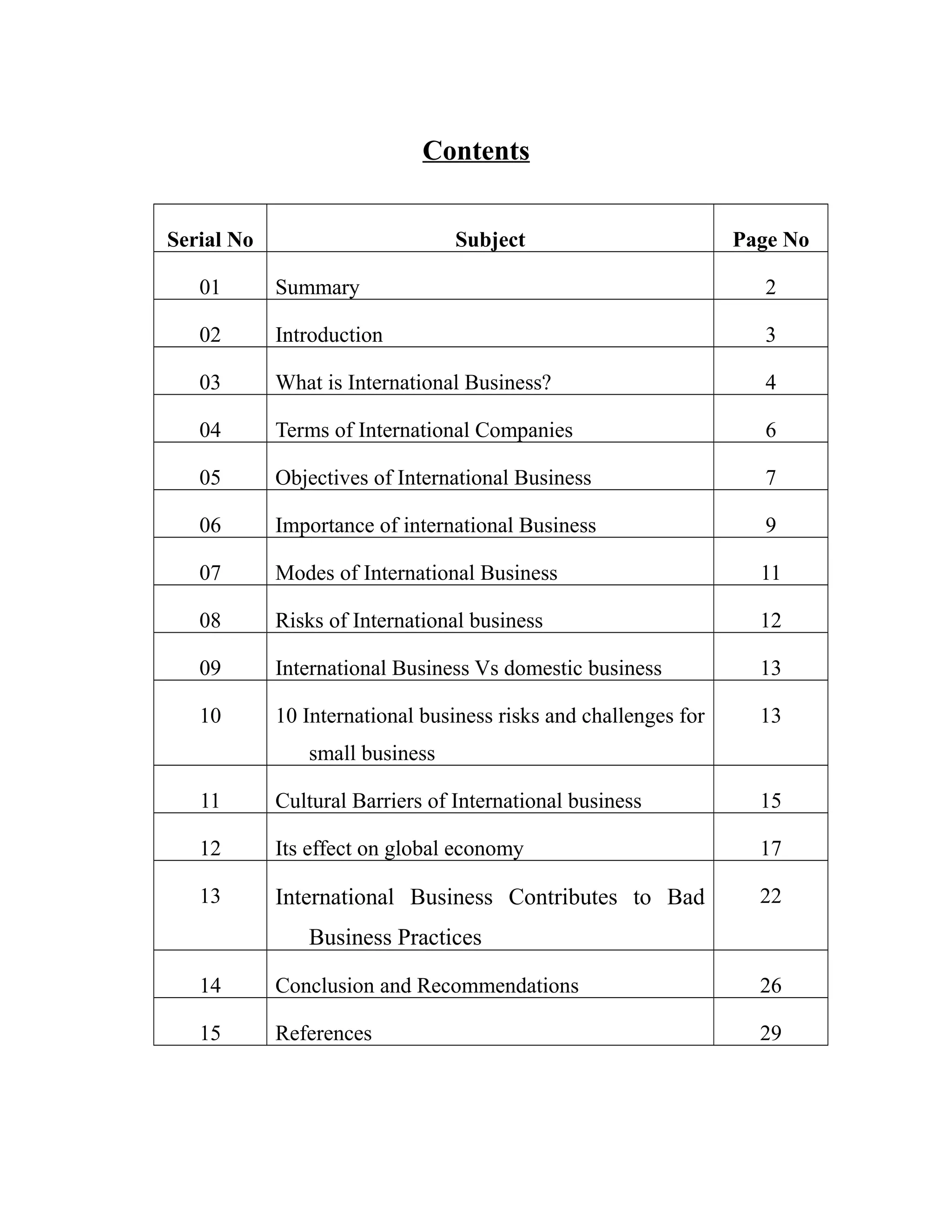
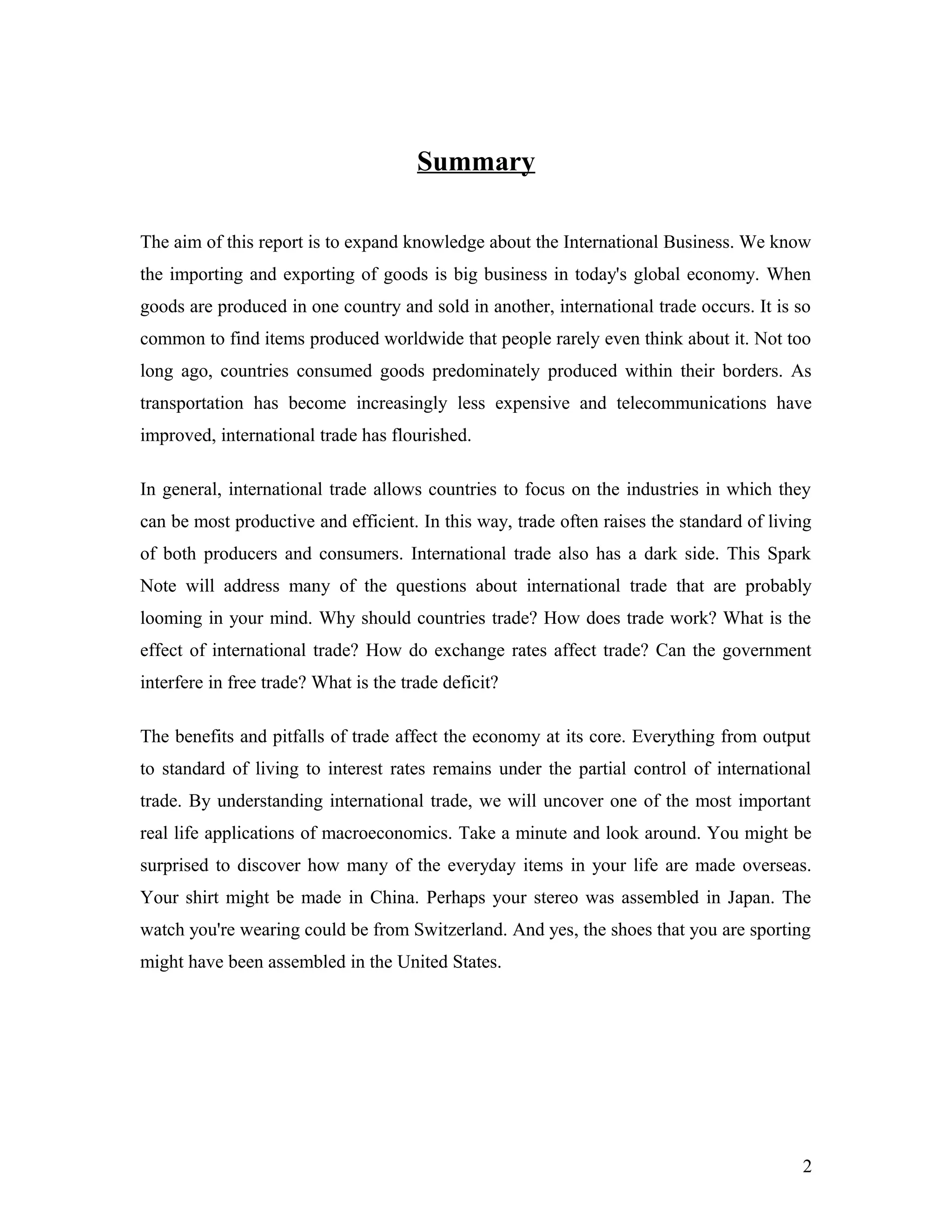
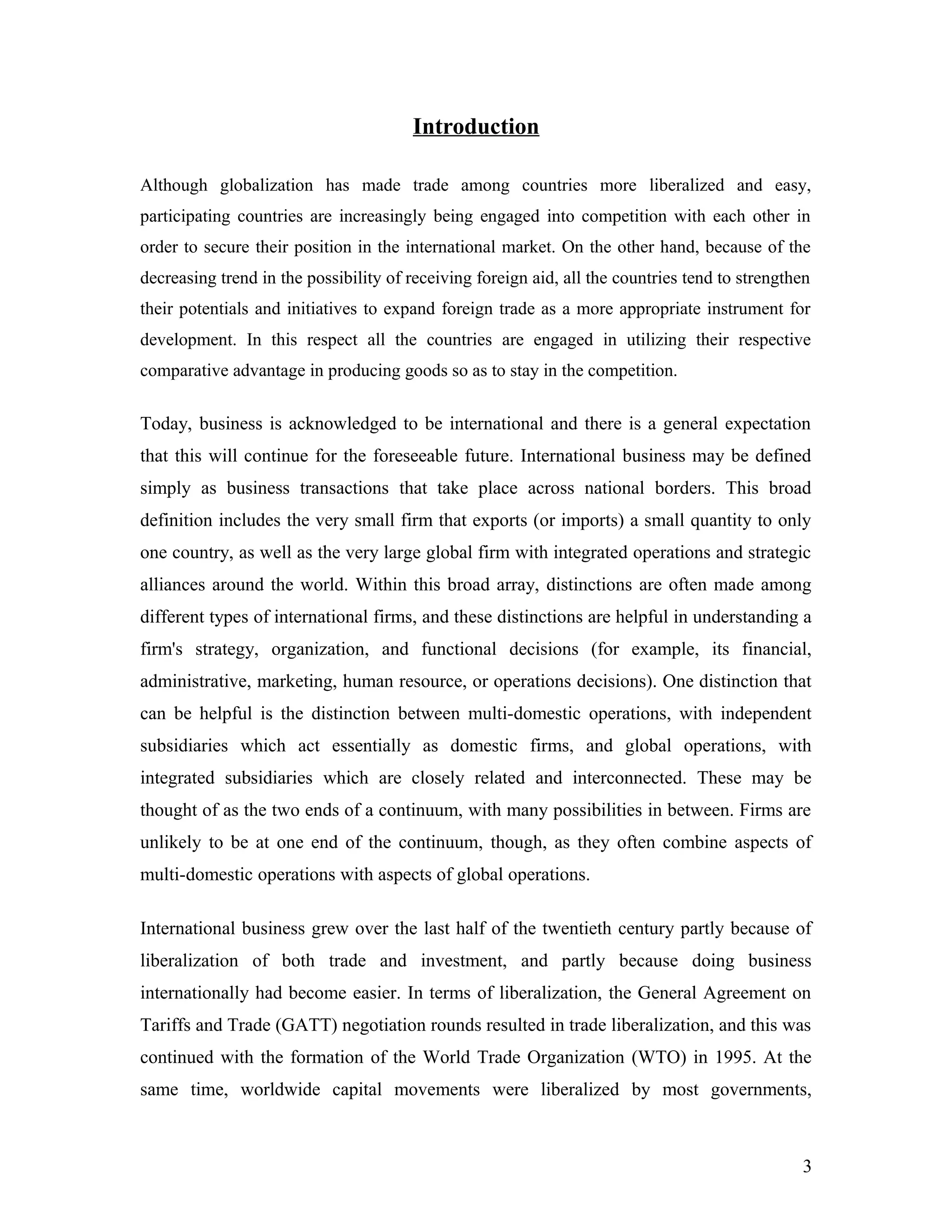
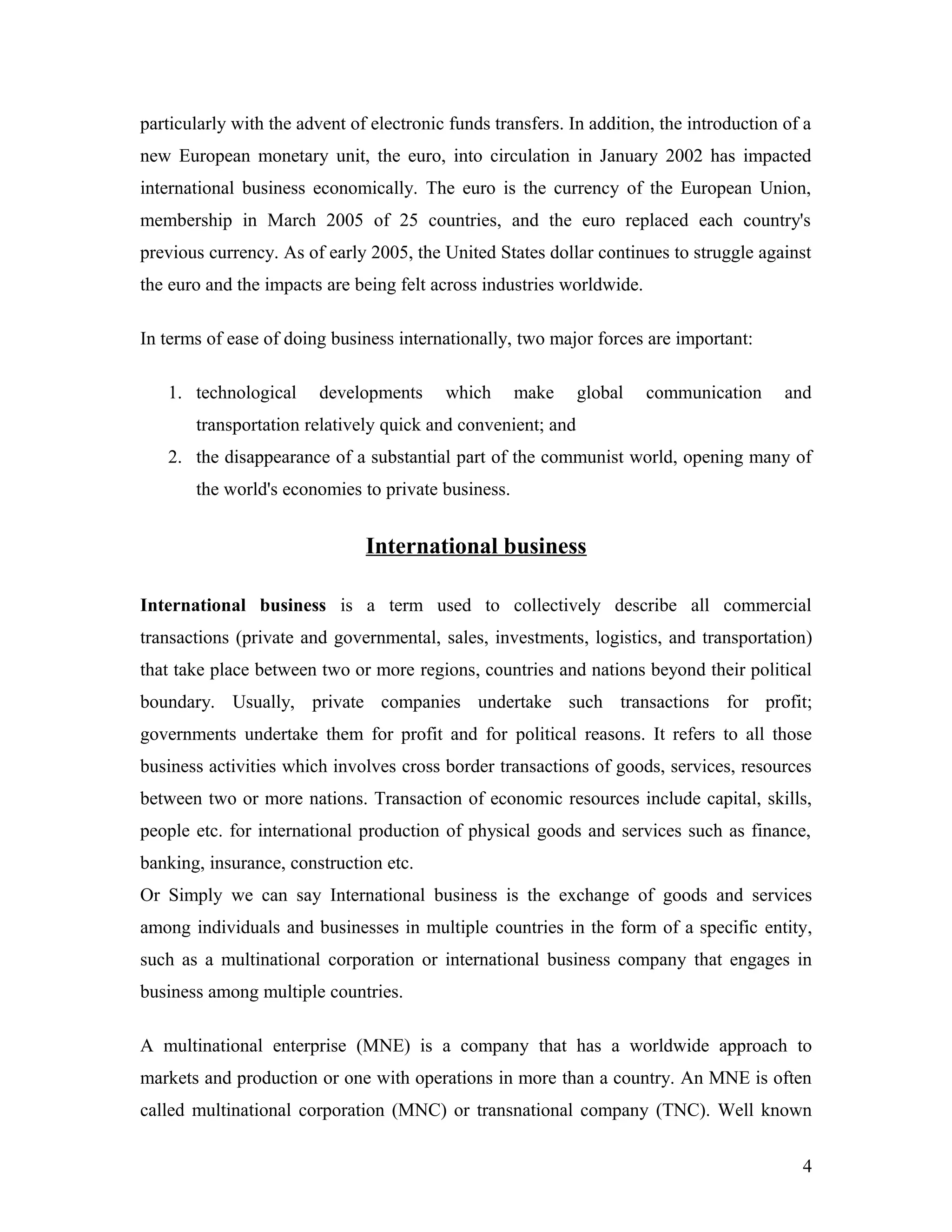
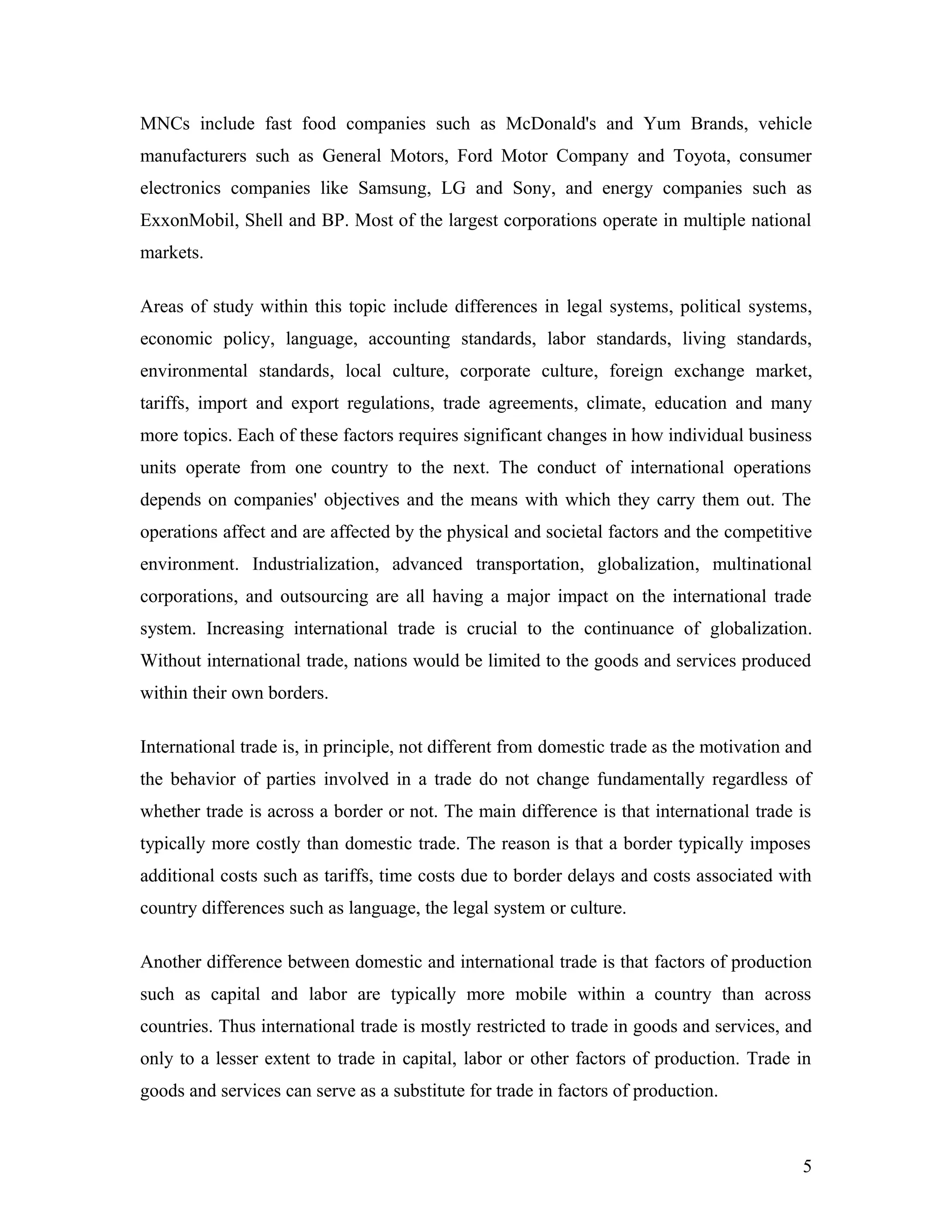
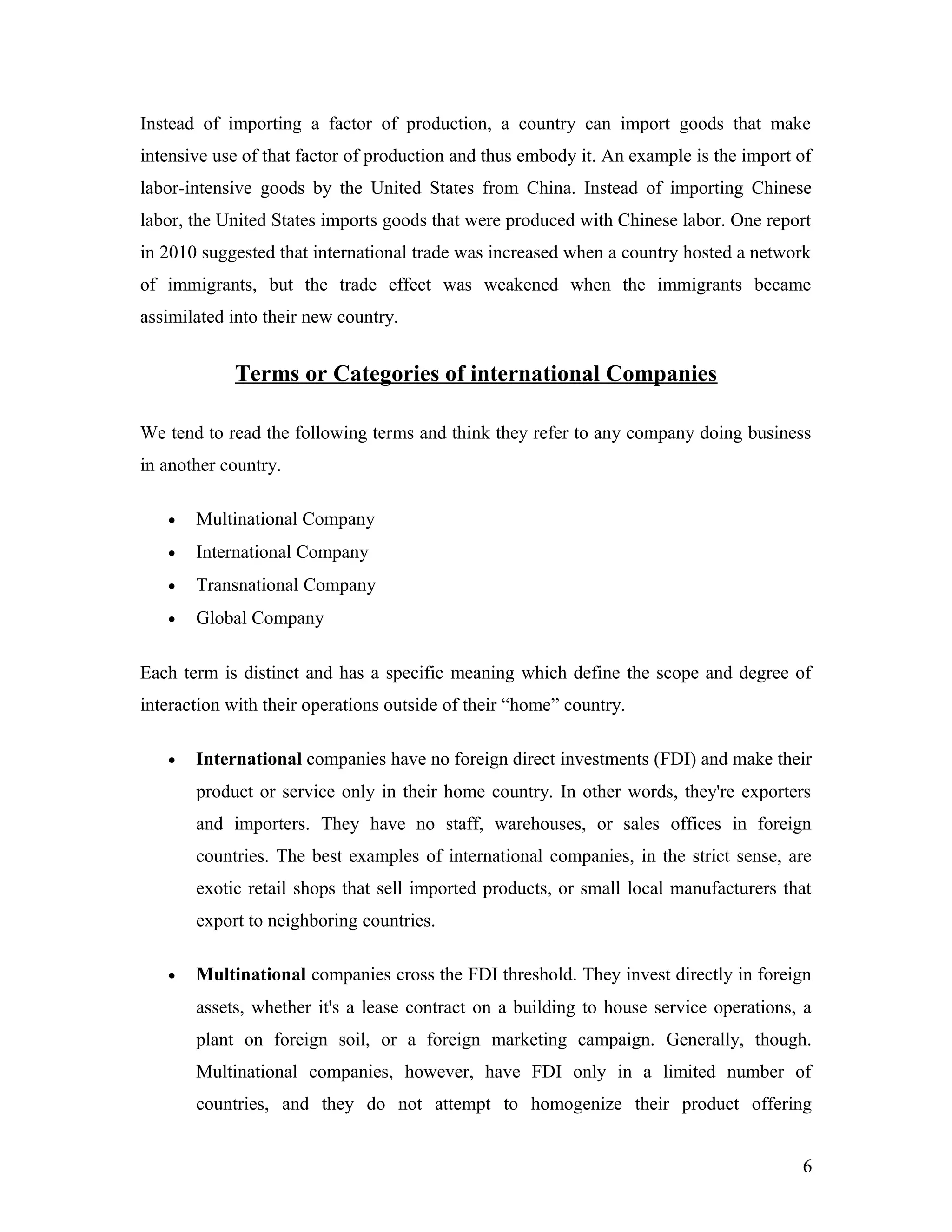
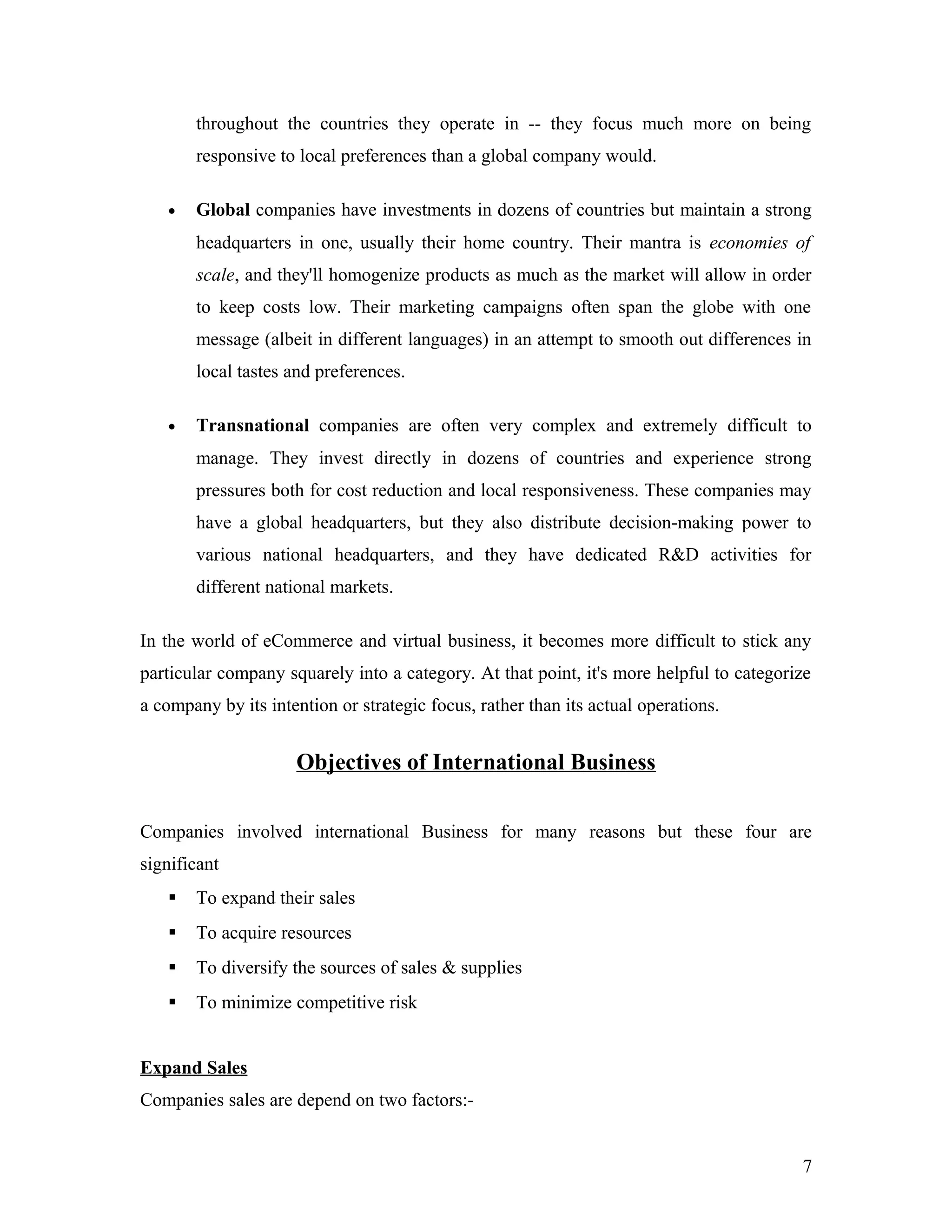
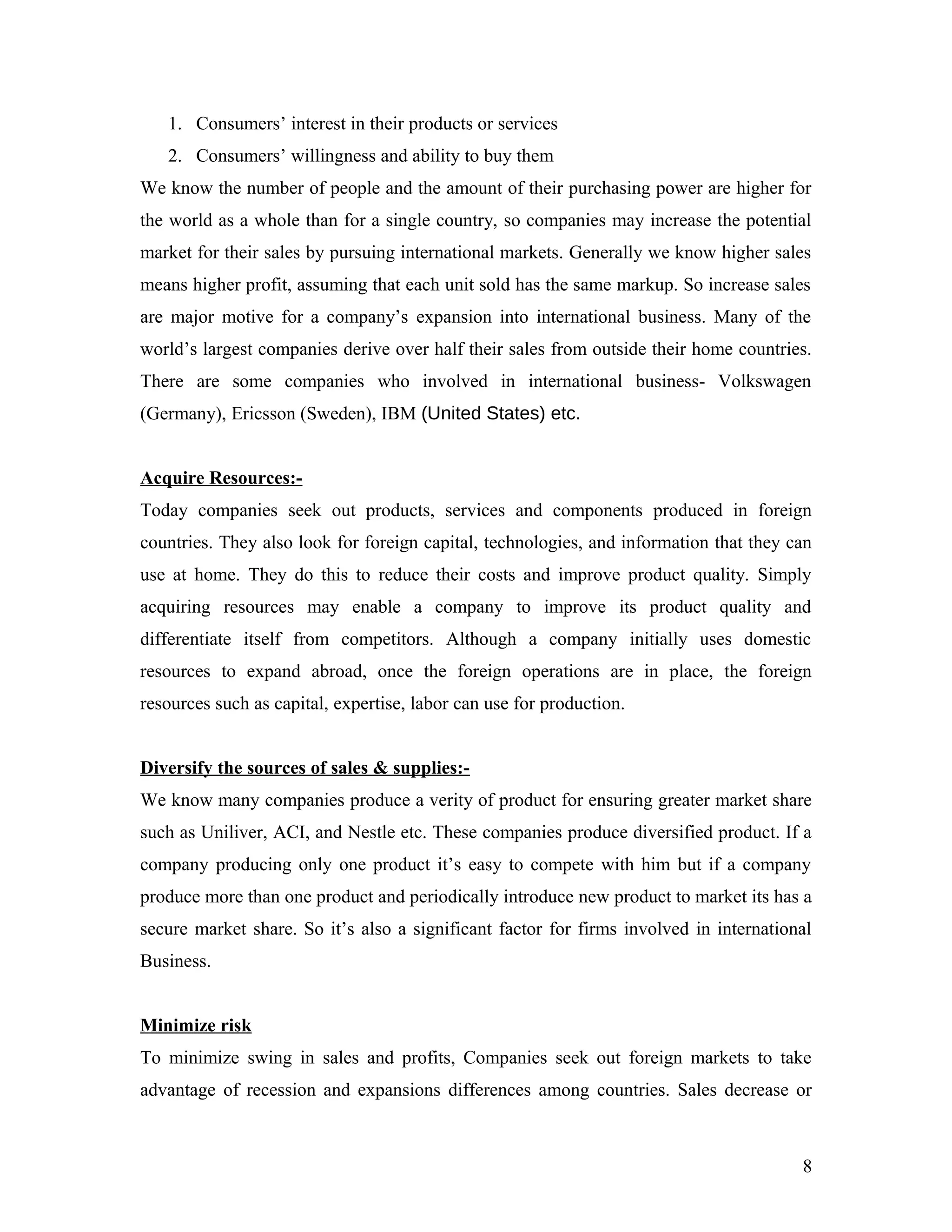
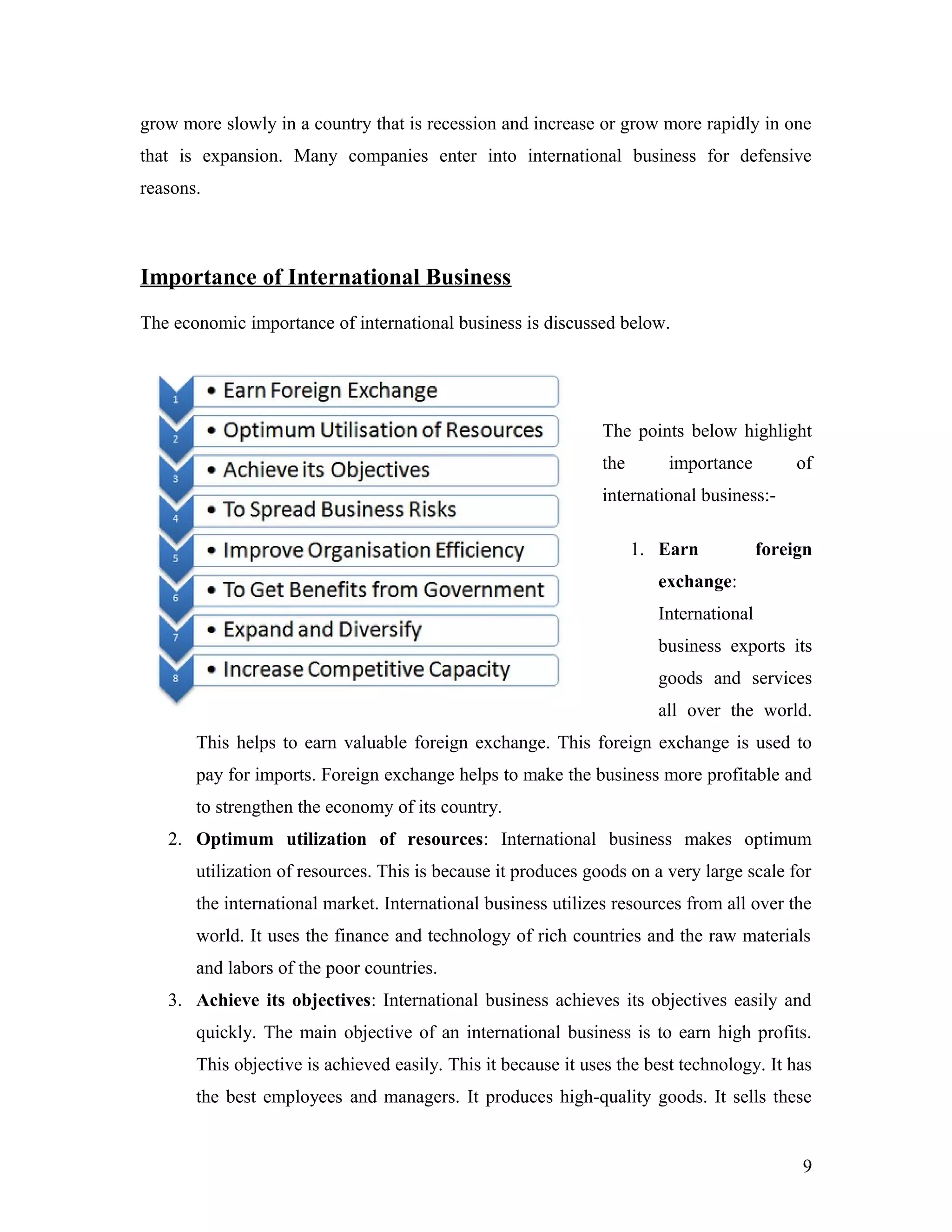
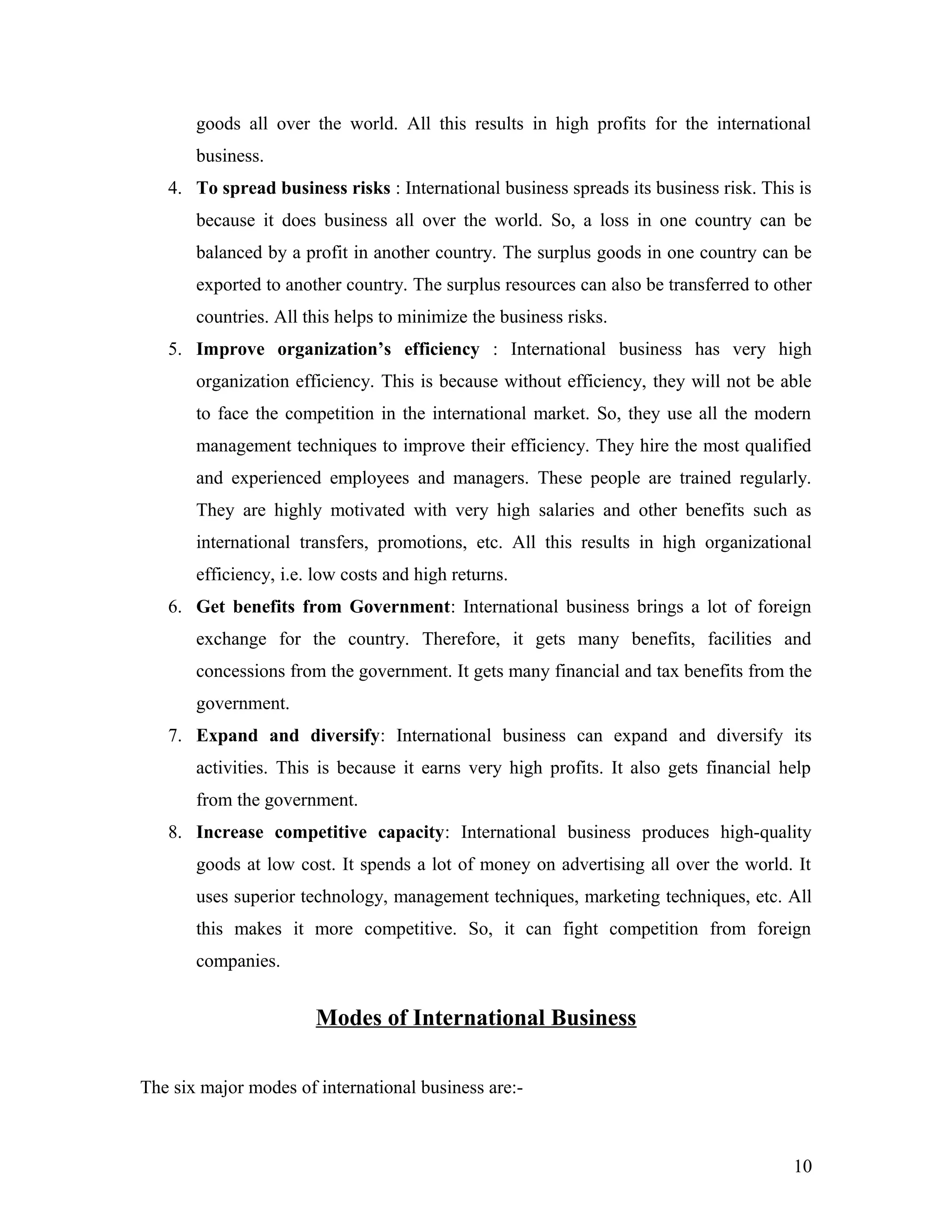
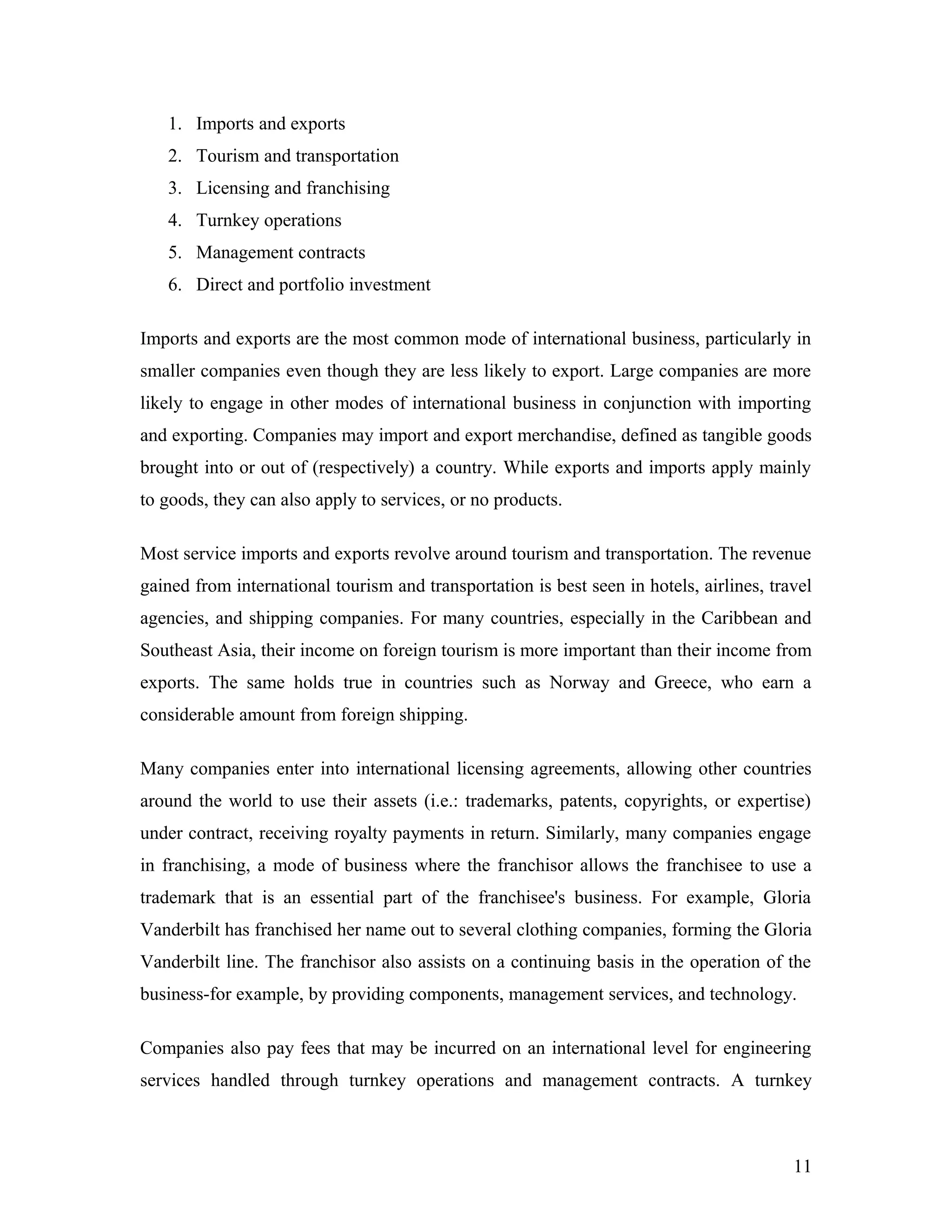
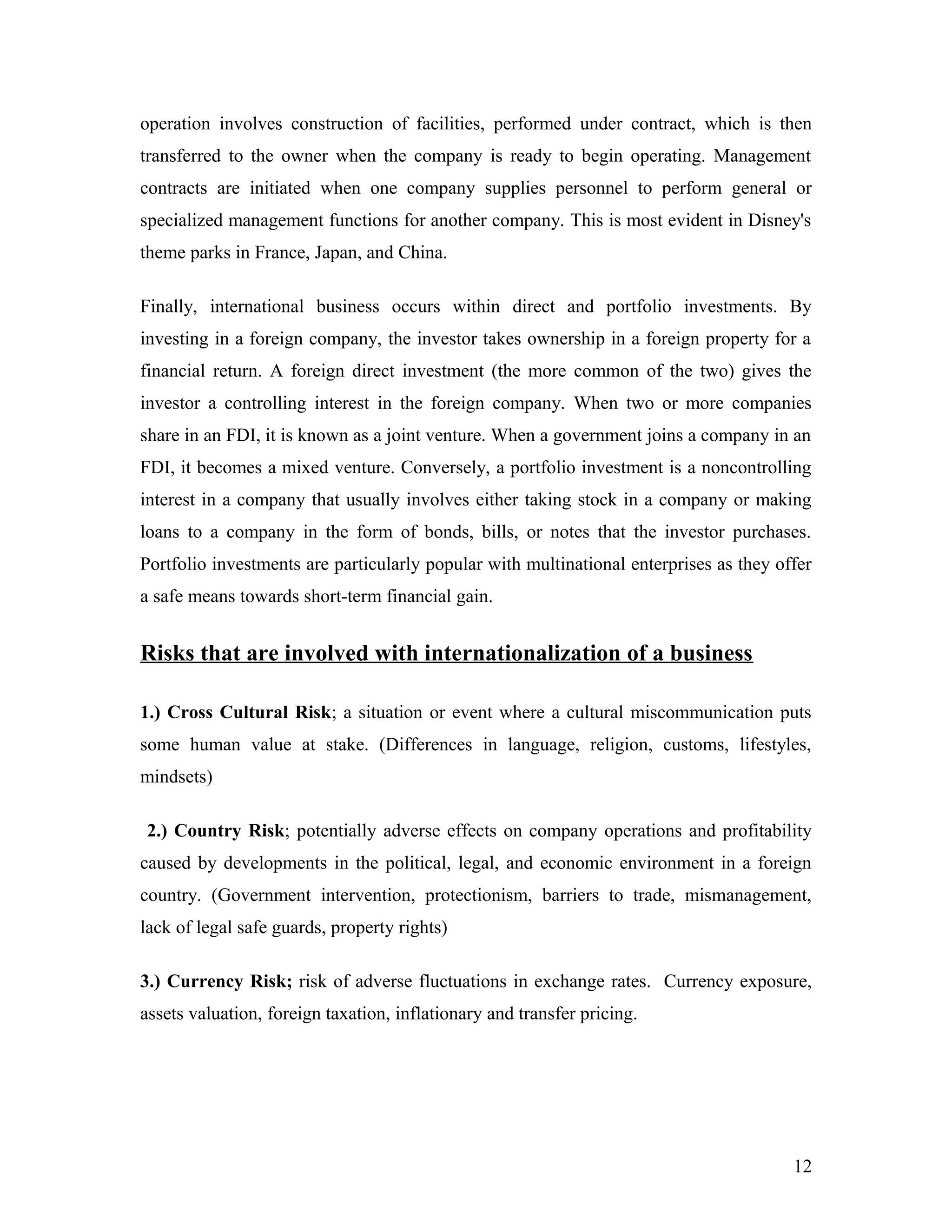
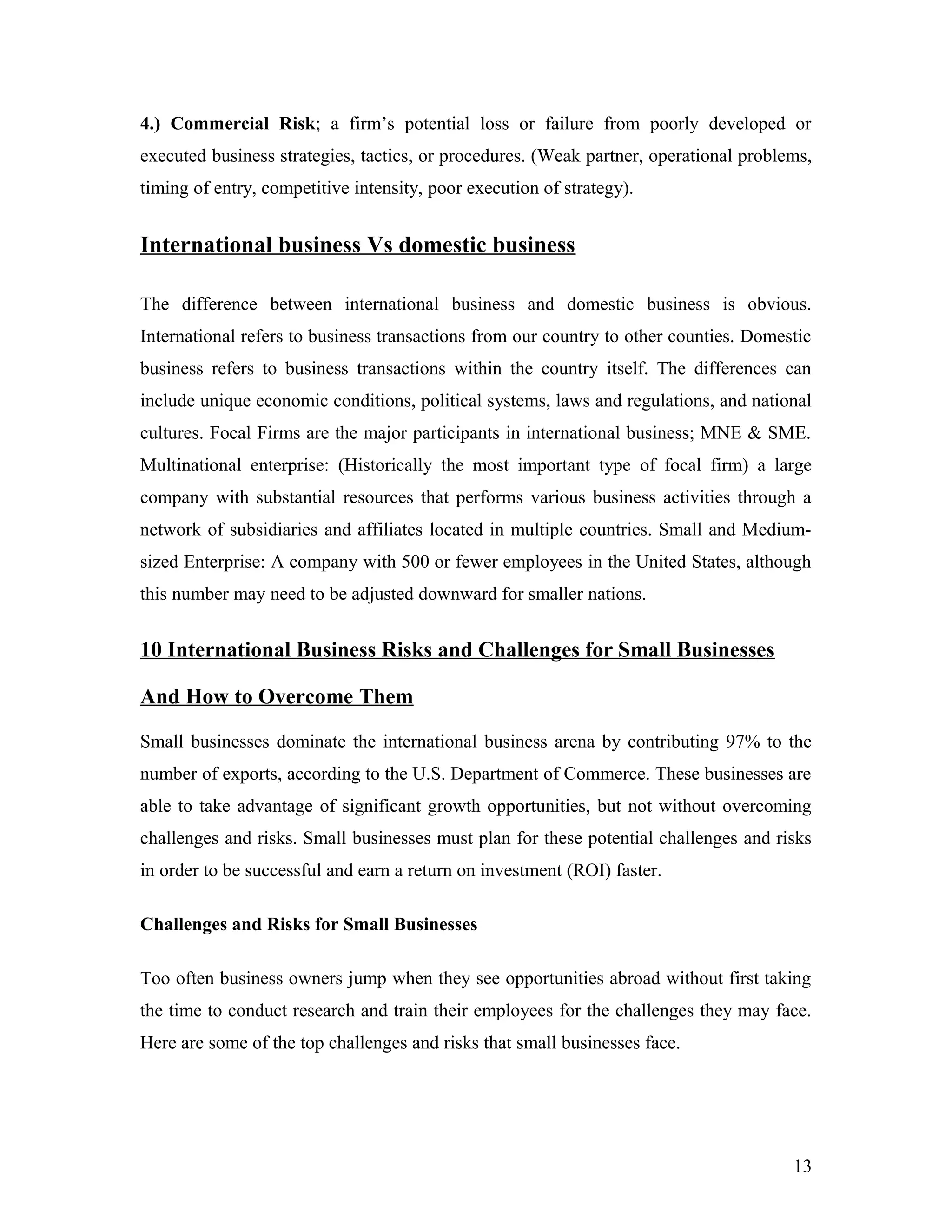
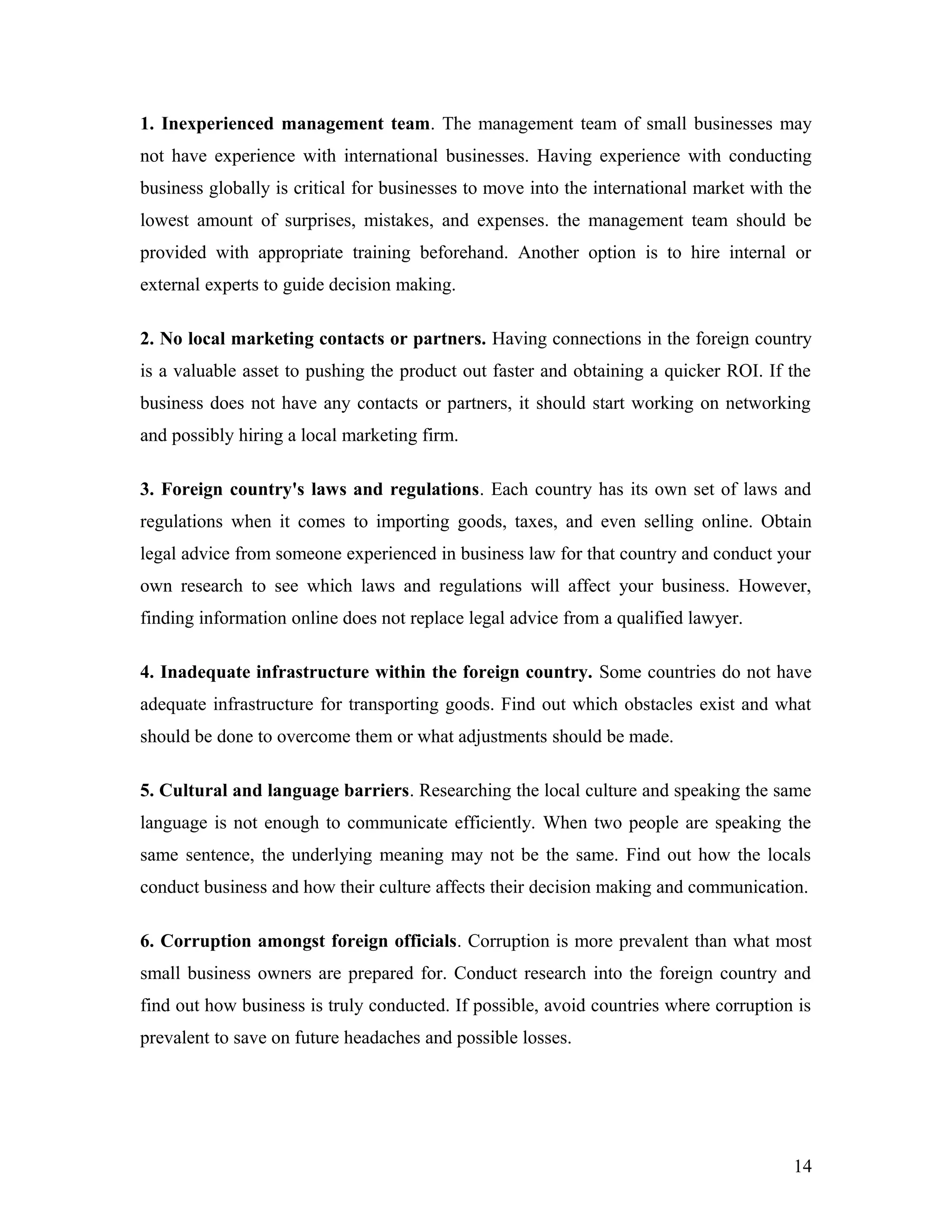
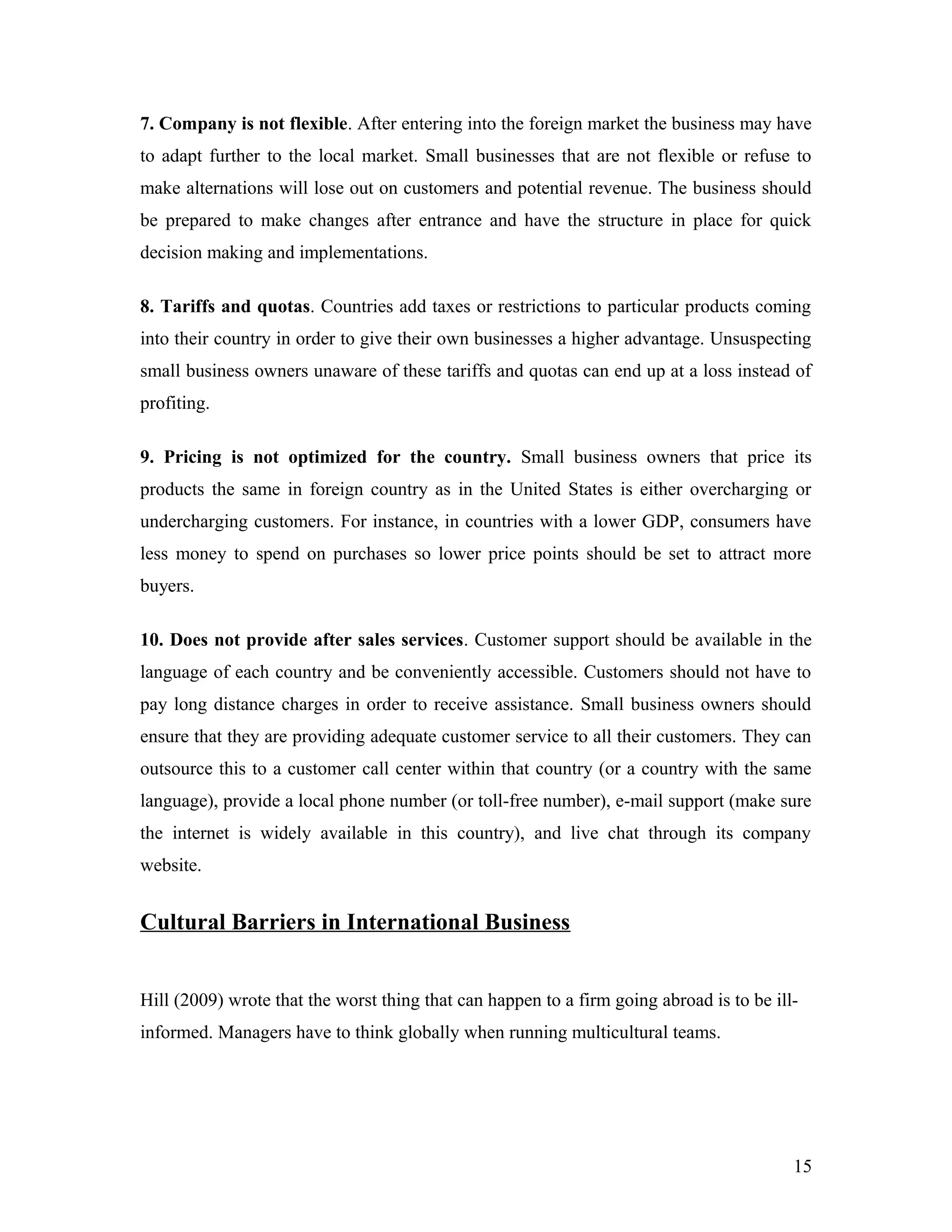
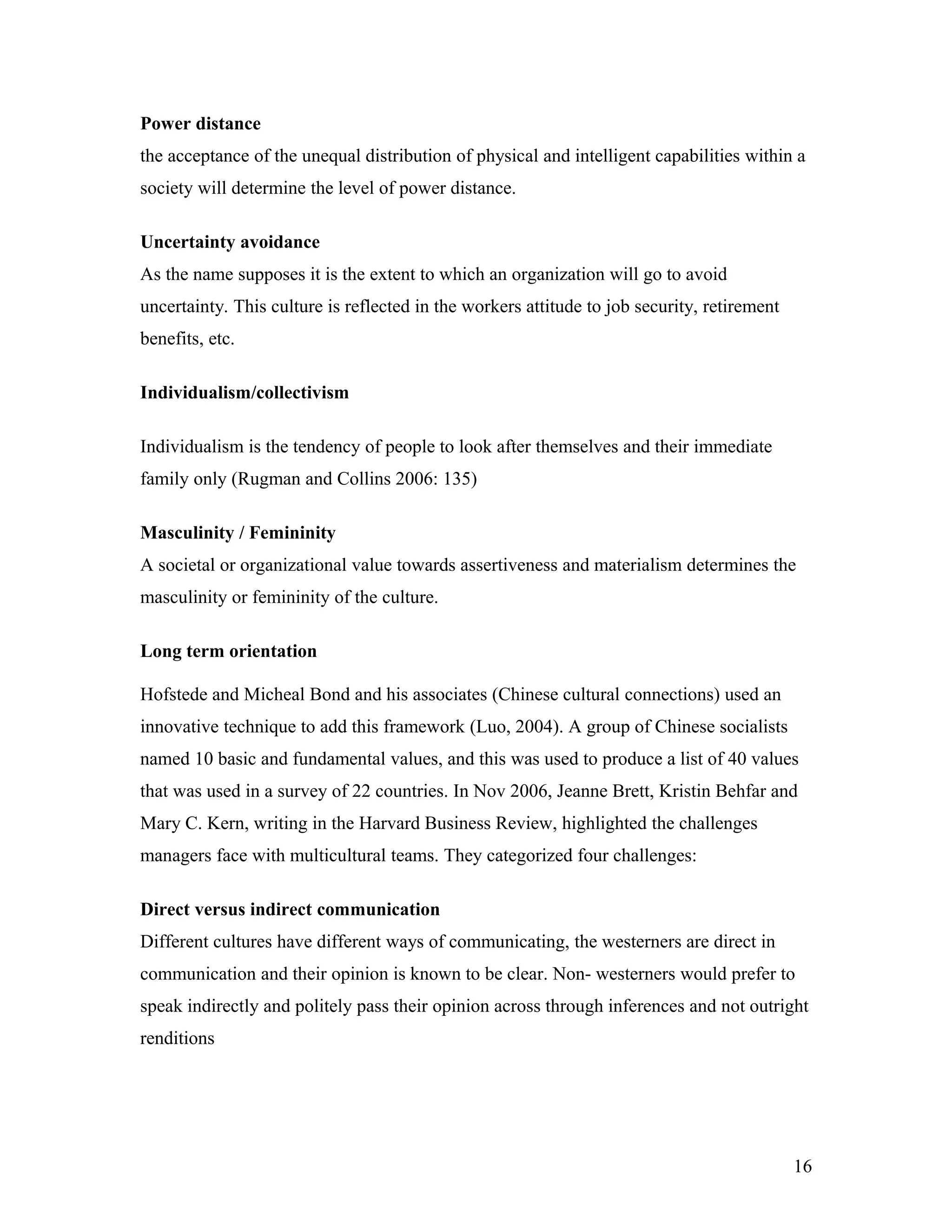
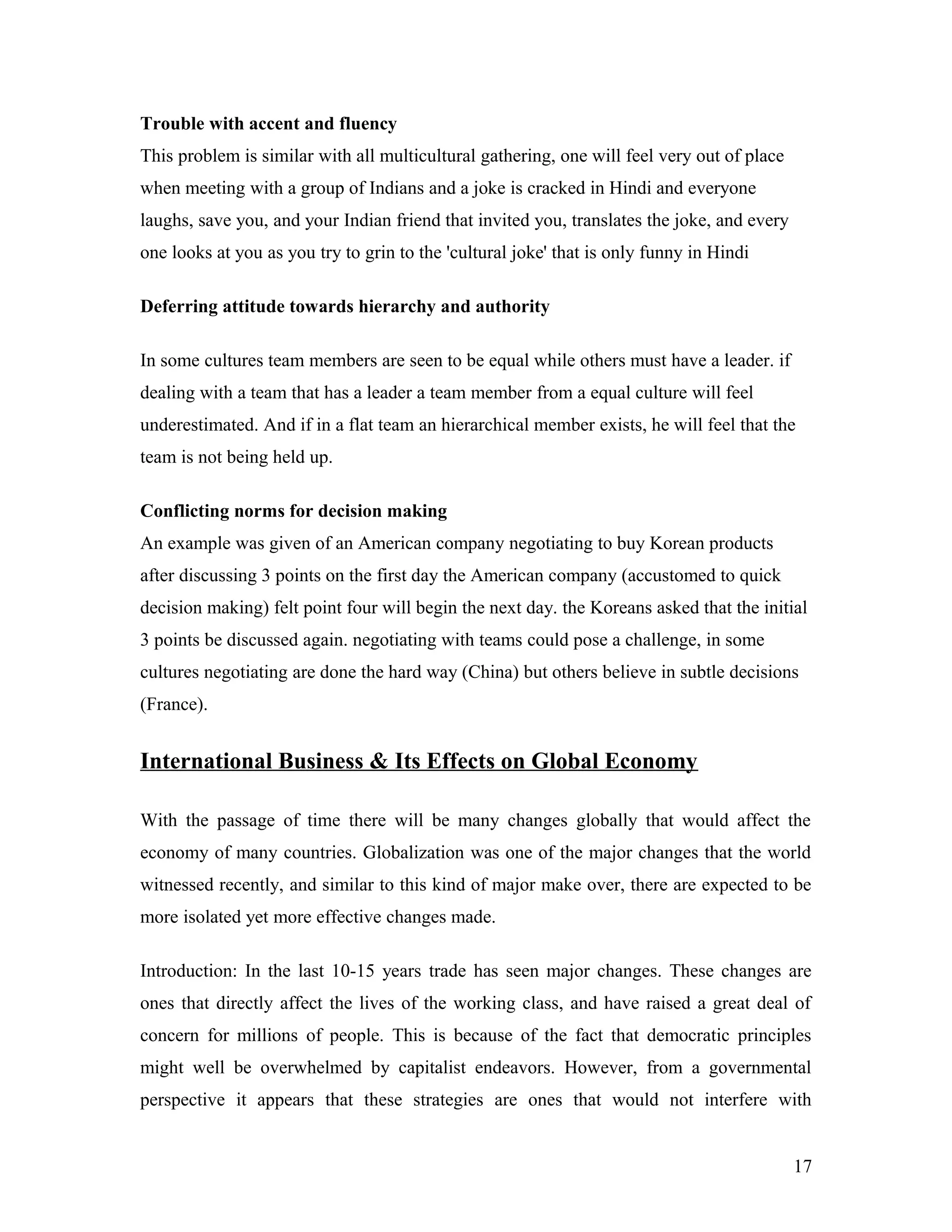
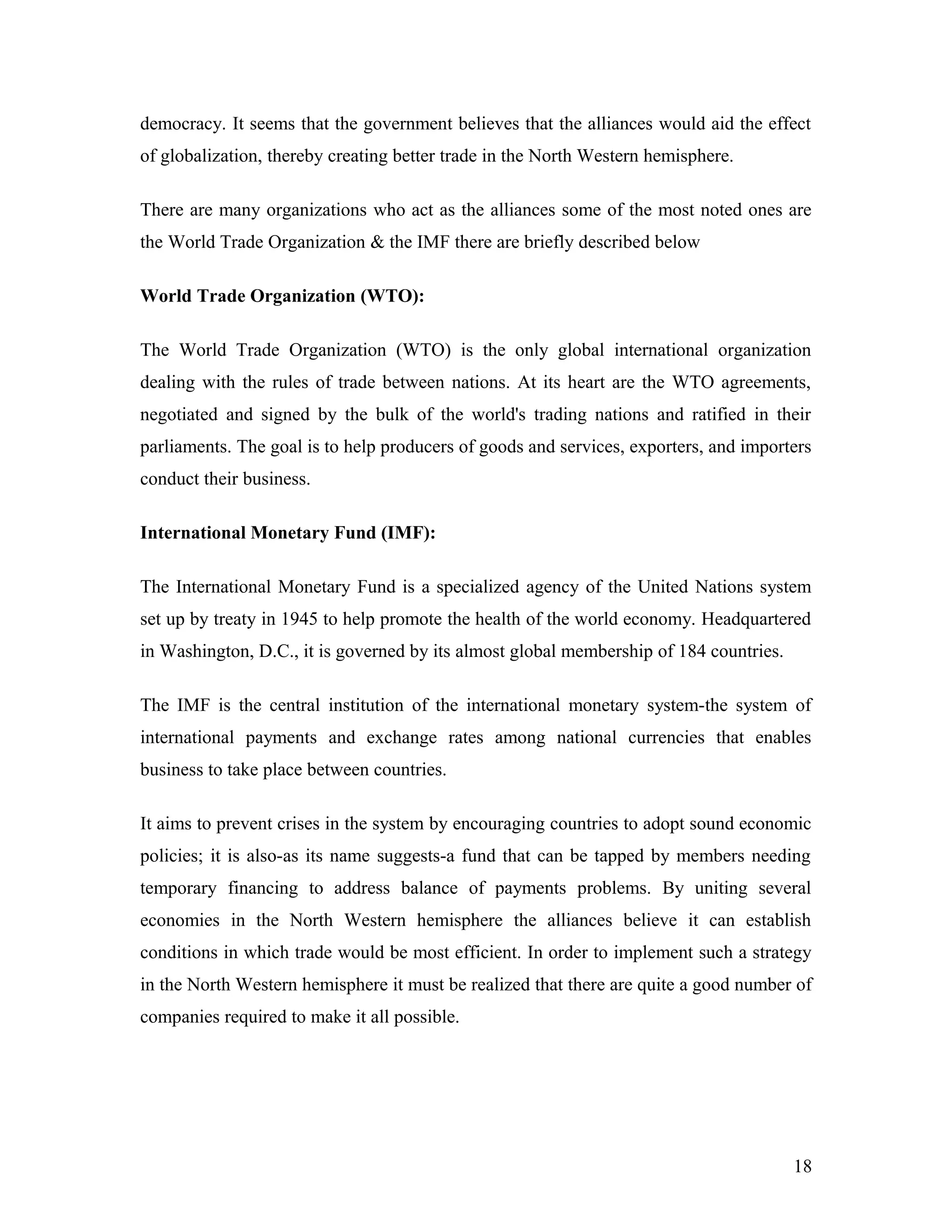
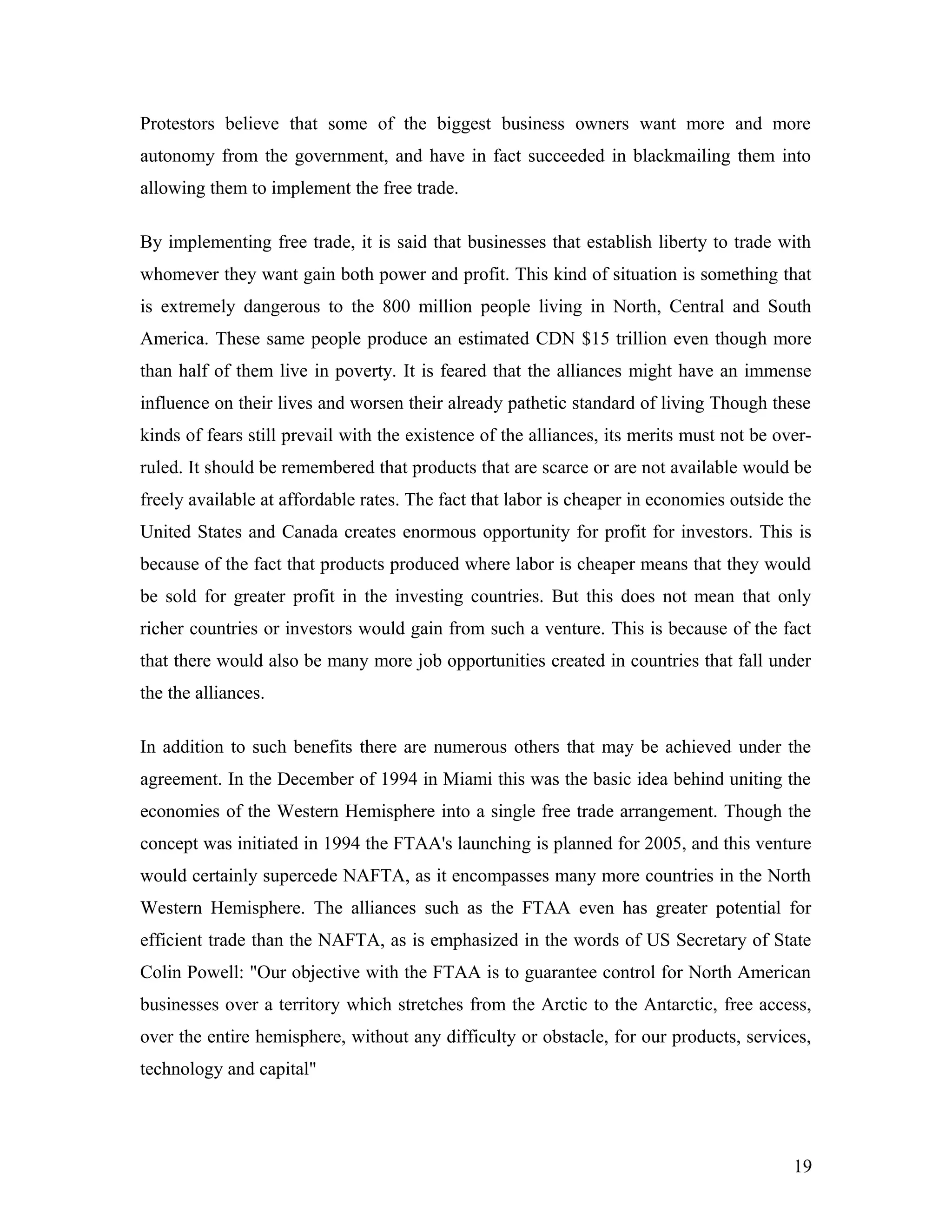
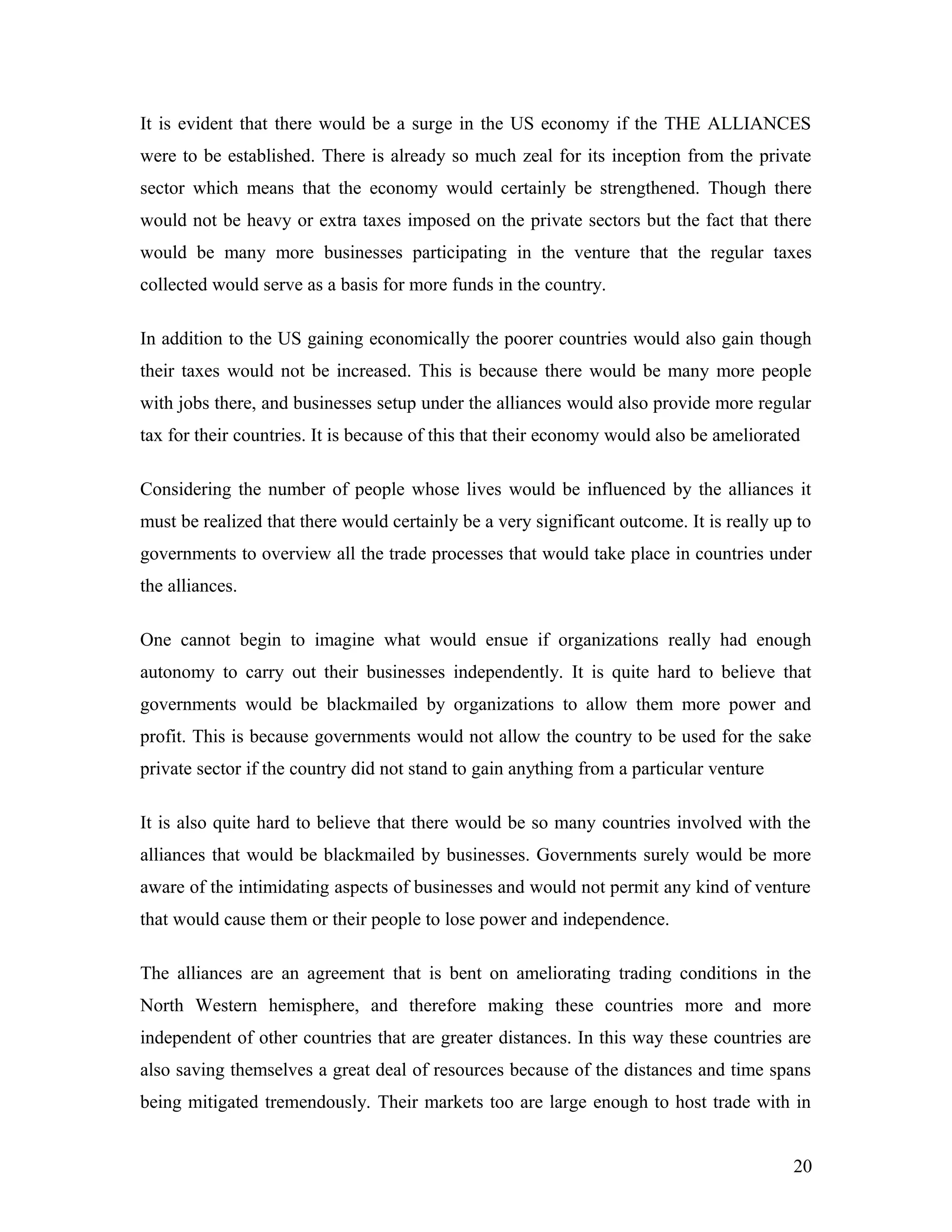
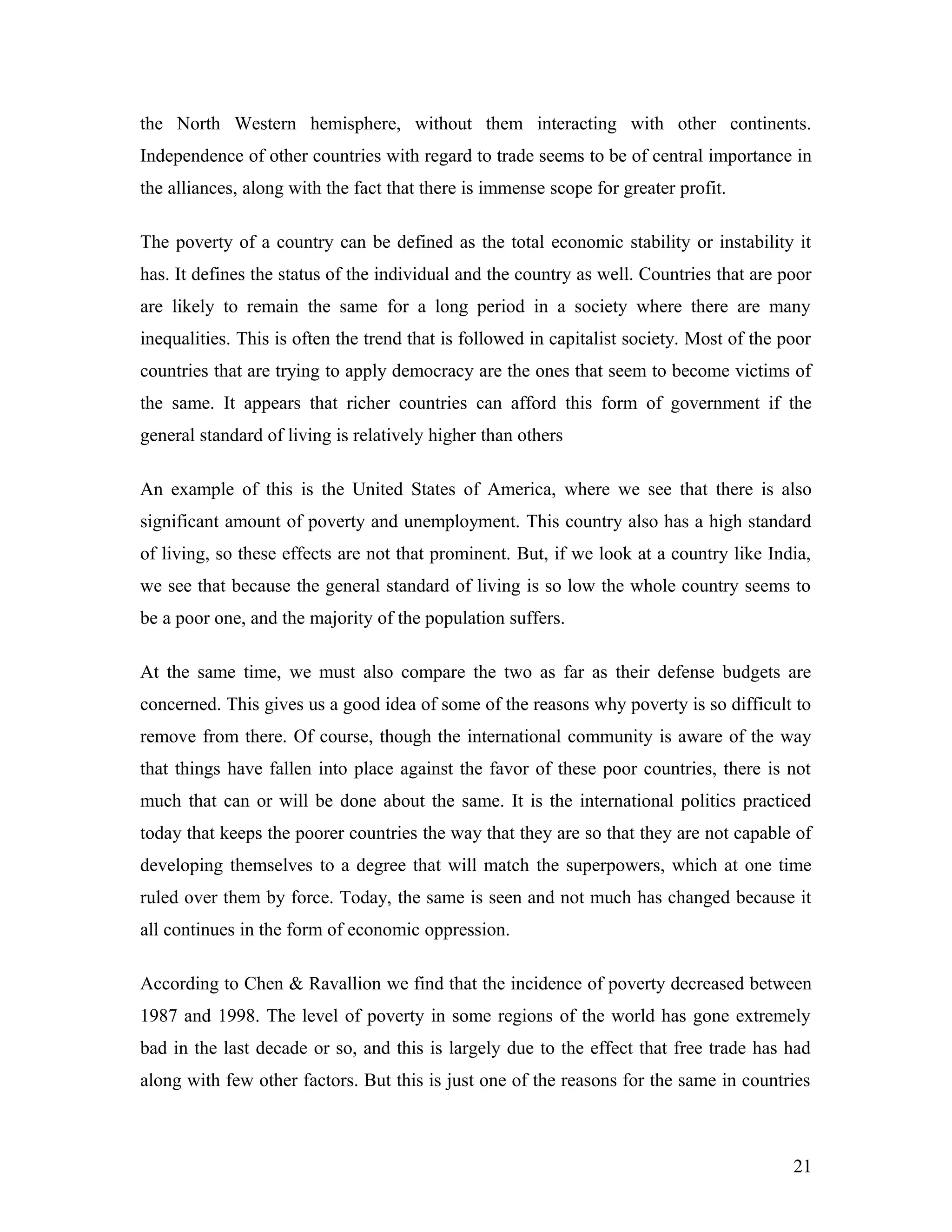
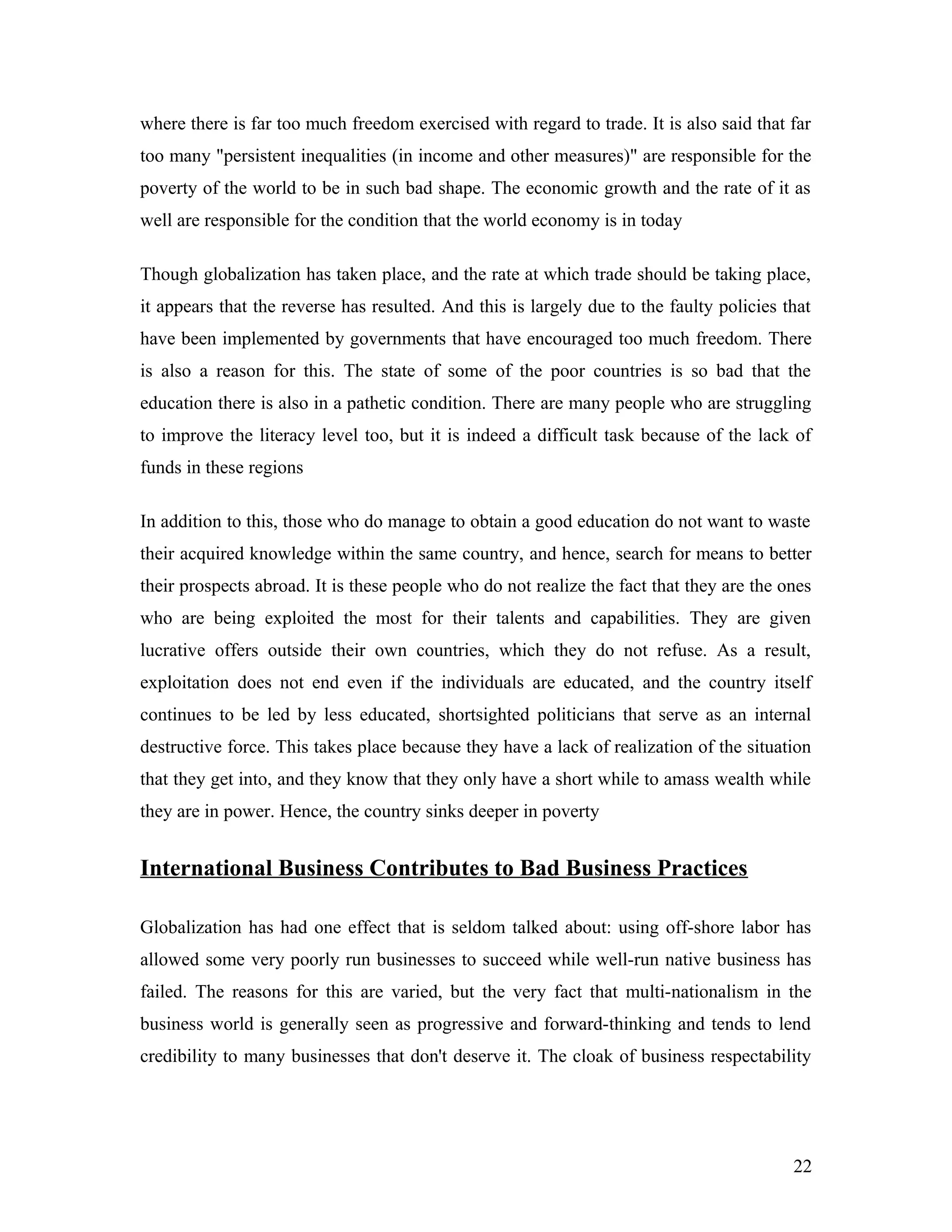
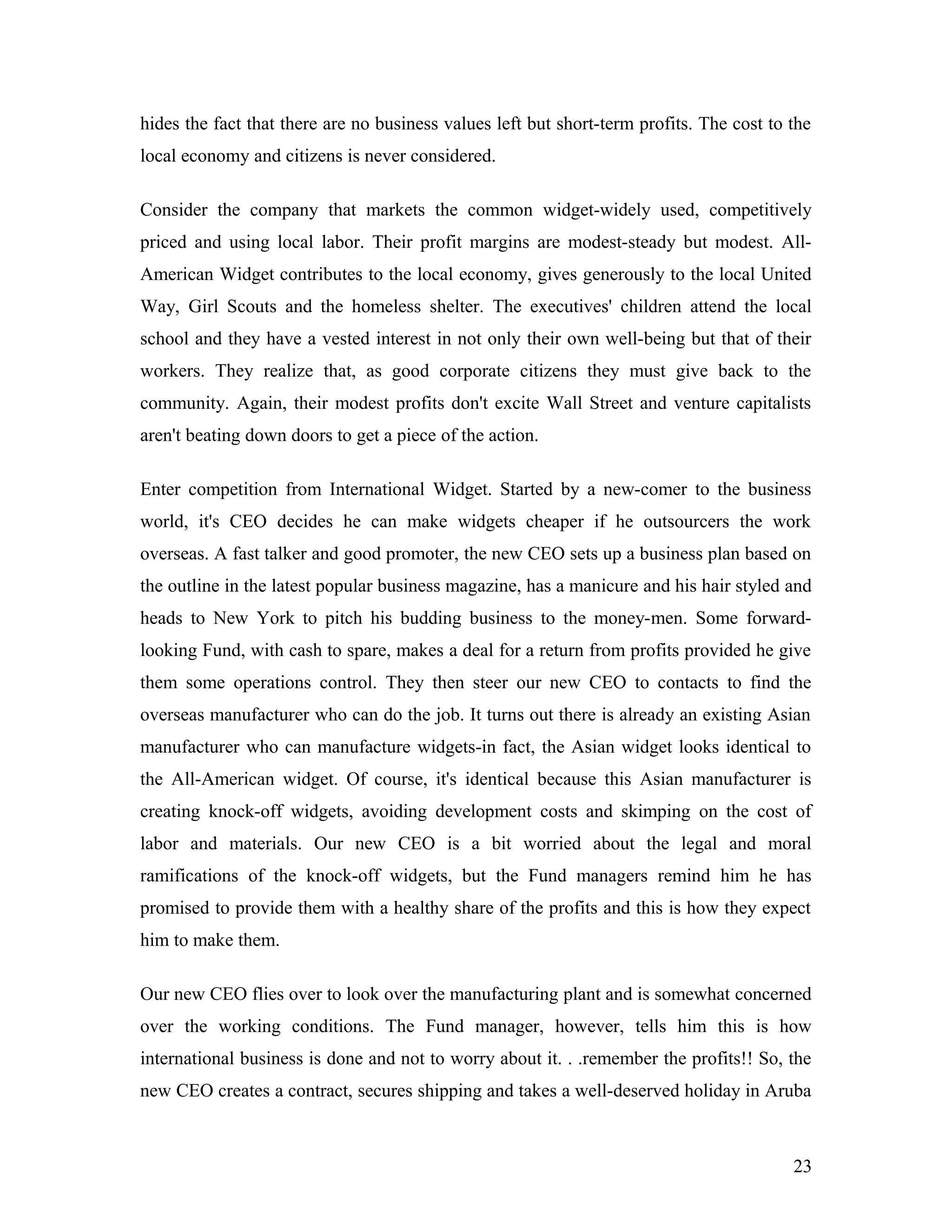
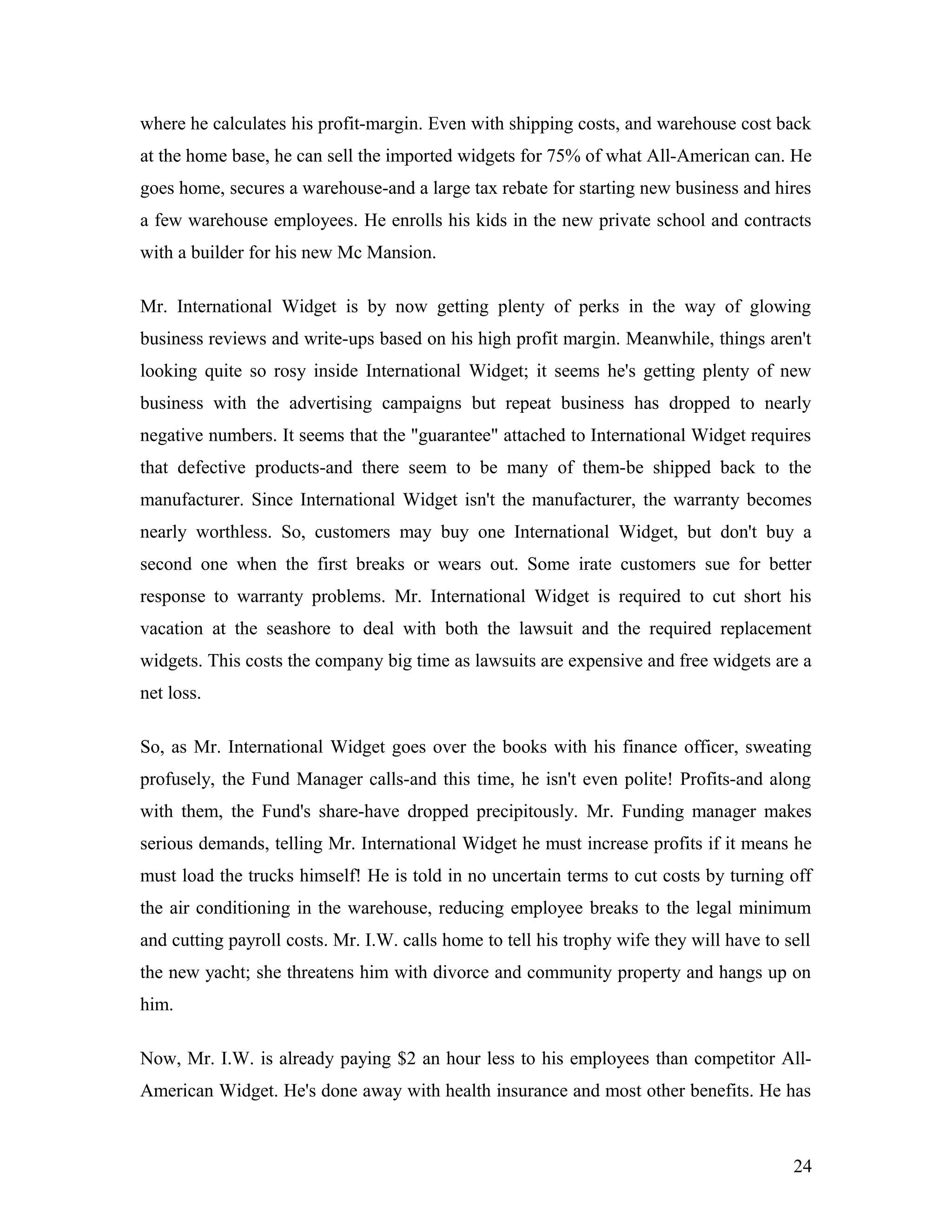
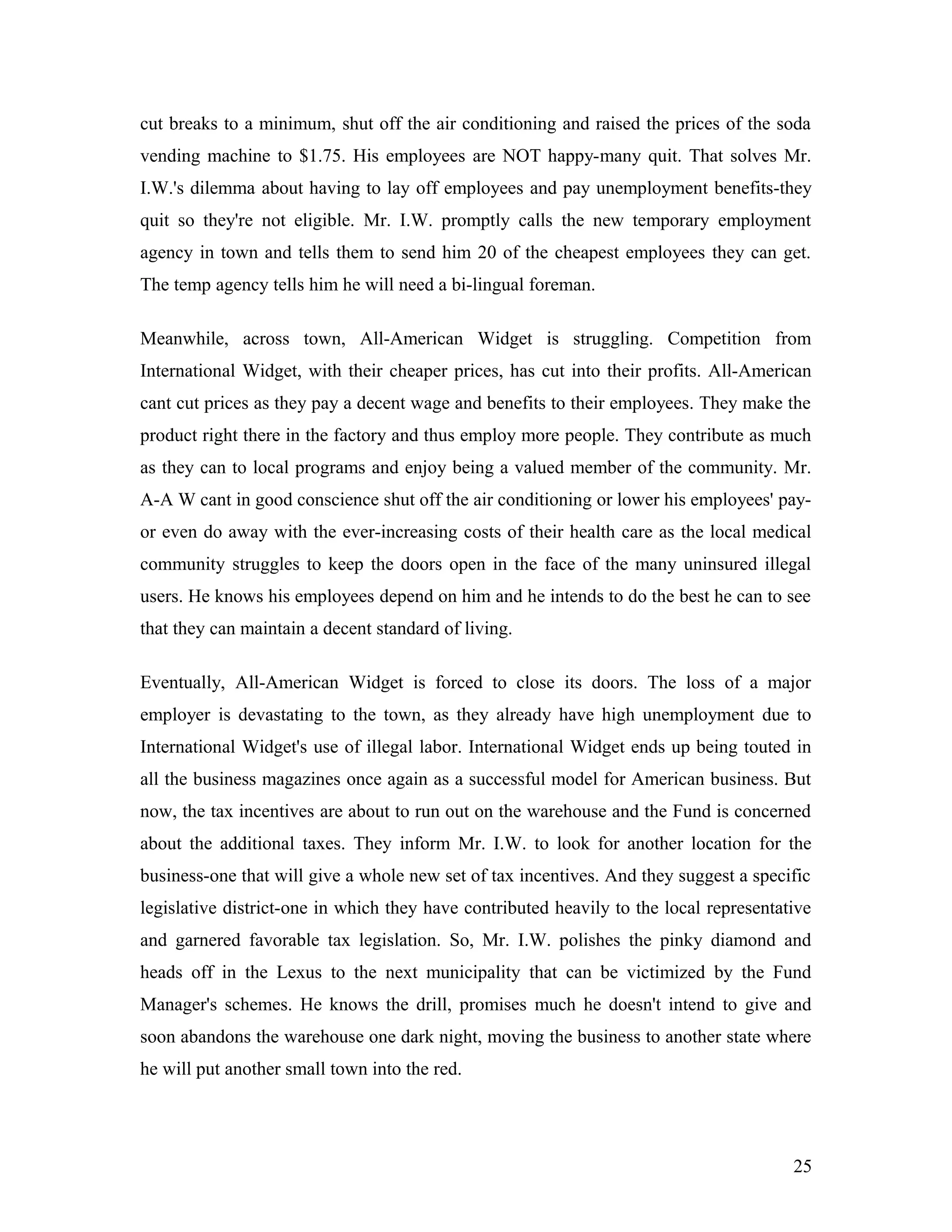
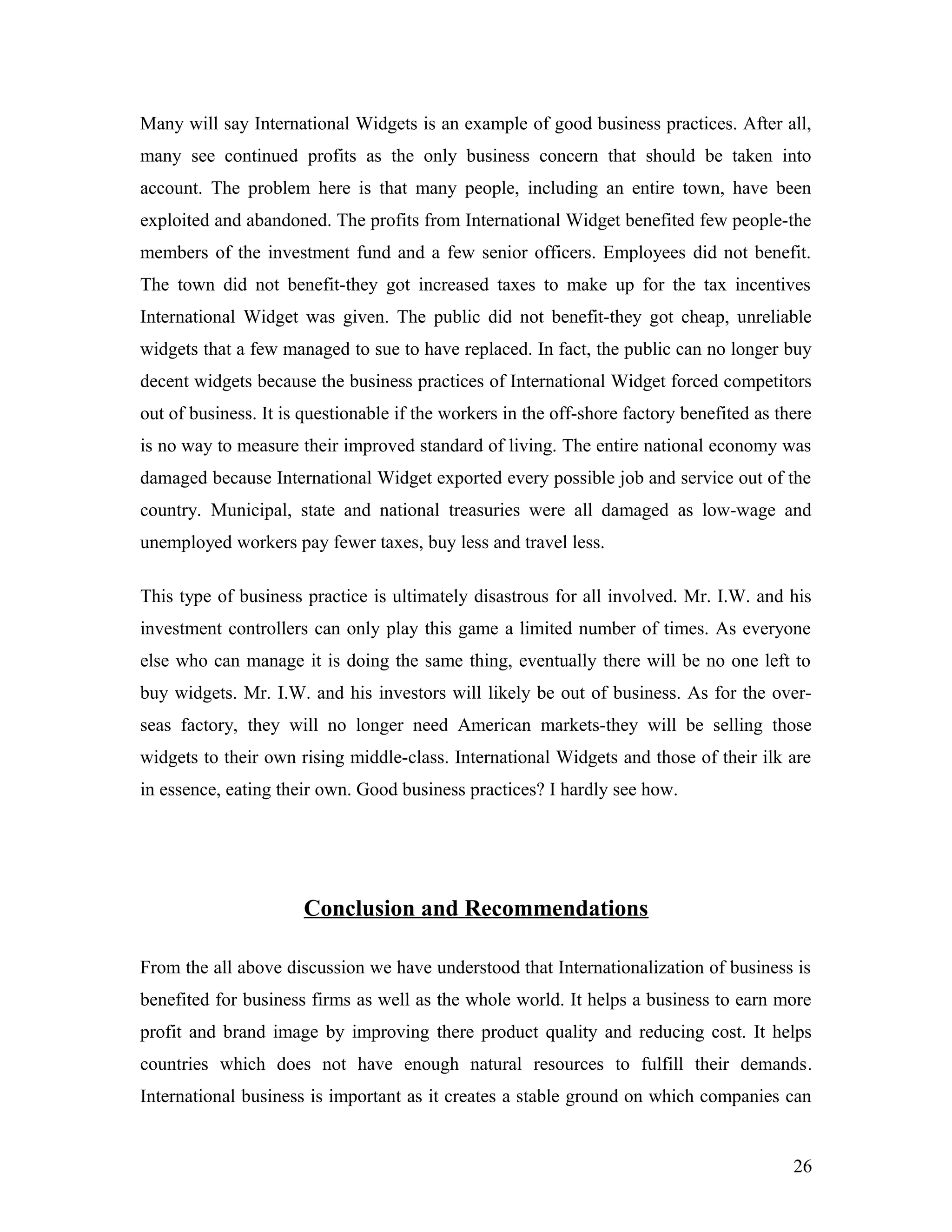
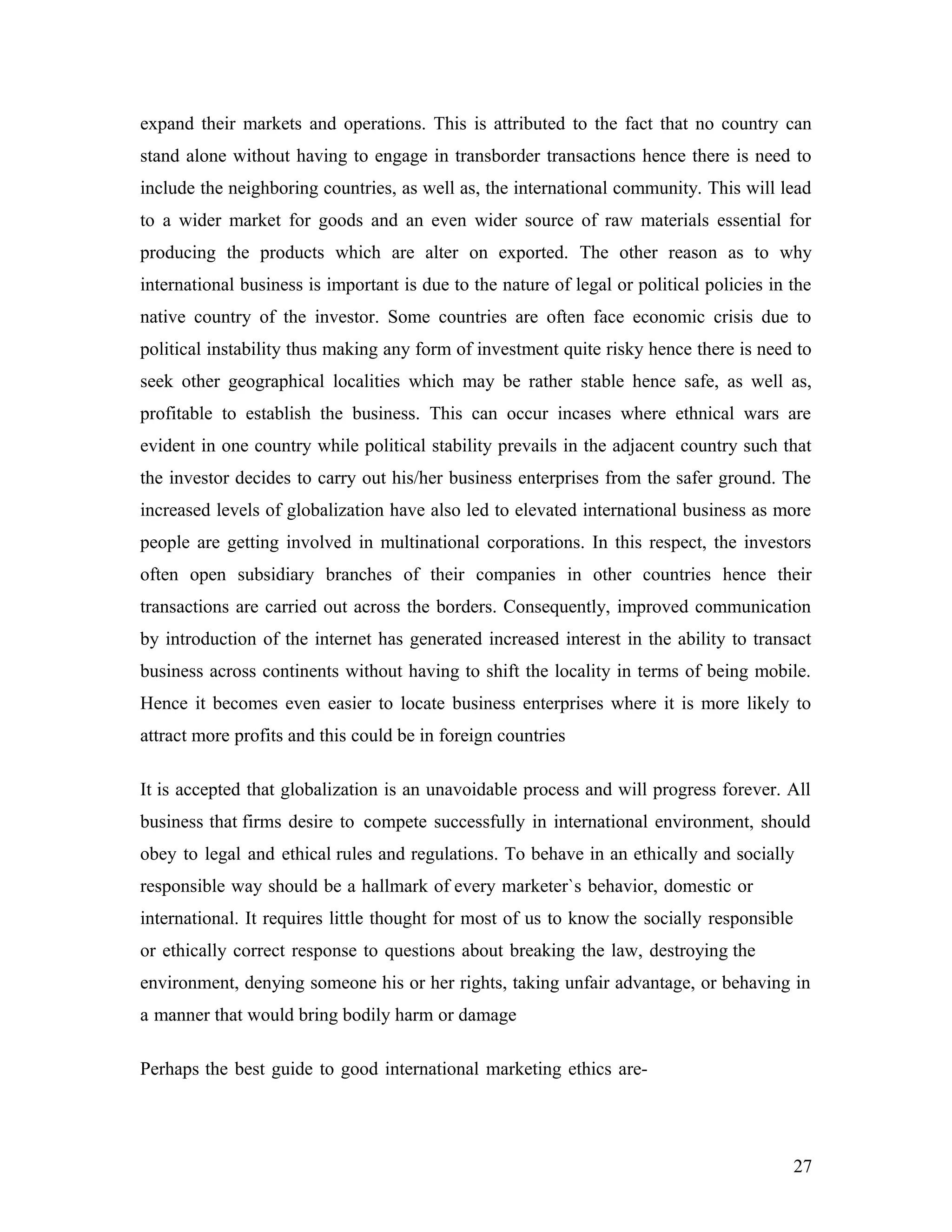
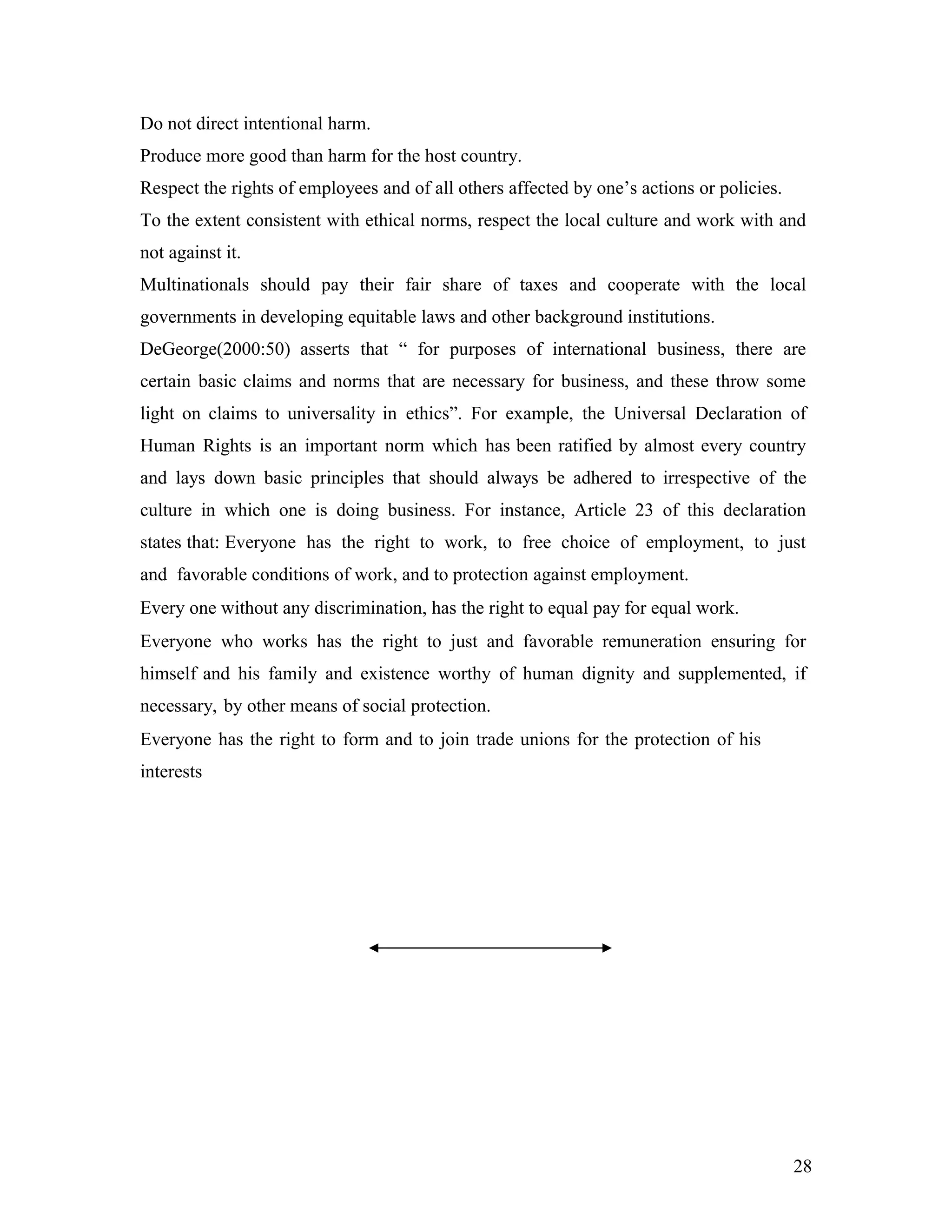
![References
WEBSITES
http://en.wikipedia.org/wiki/International_business
http://voices.yahoo.com/international-business-contributes-1553357.html?cat=9
http://voices.yahoo.com/10-international-business-risks-7526598.html?cat=3
http://www.local.com/y/results.aspx?keyword=international+business&cid=17493
http://www.exampleessays.com/essay_search/Conclusion_Business.html
http://www.businessdictionary.com/definition/international-
business.html#ixzz1lQbk1XYU
BOOKS
Daniels, J.D., Radebauch, L.H and Sullivan, D.P "international Business Environment
and Operations" Tenth edition
Charles W.L Hill “International Business, Competing in the global marketplace. Sixth
edition
Helen, V.M., and David, B.Y (1989) "between free trade and protectionism: strategic
trade policy and theory of corporate trade demands" [E-Book] International Organization
Morrison, J. (2006) "The international business environment: global and local
marketplaces in a changing world"
29](https://image.slidesharecdn.com/introbus2-151213170544/75/Intro-bus-2-29-2048.jpg)